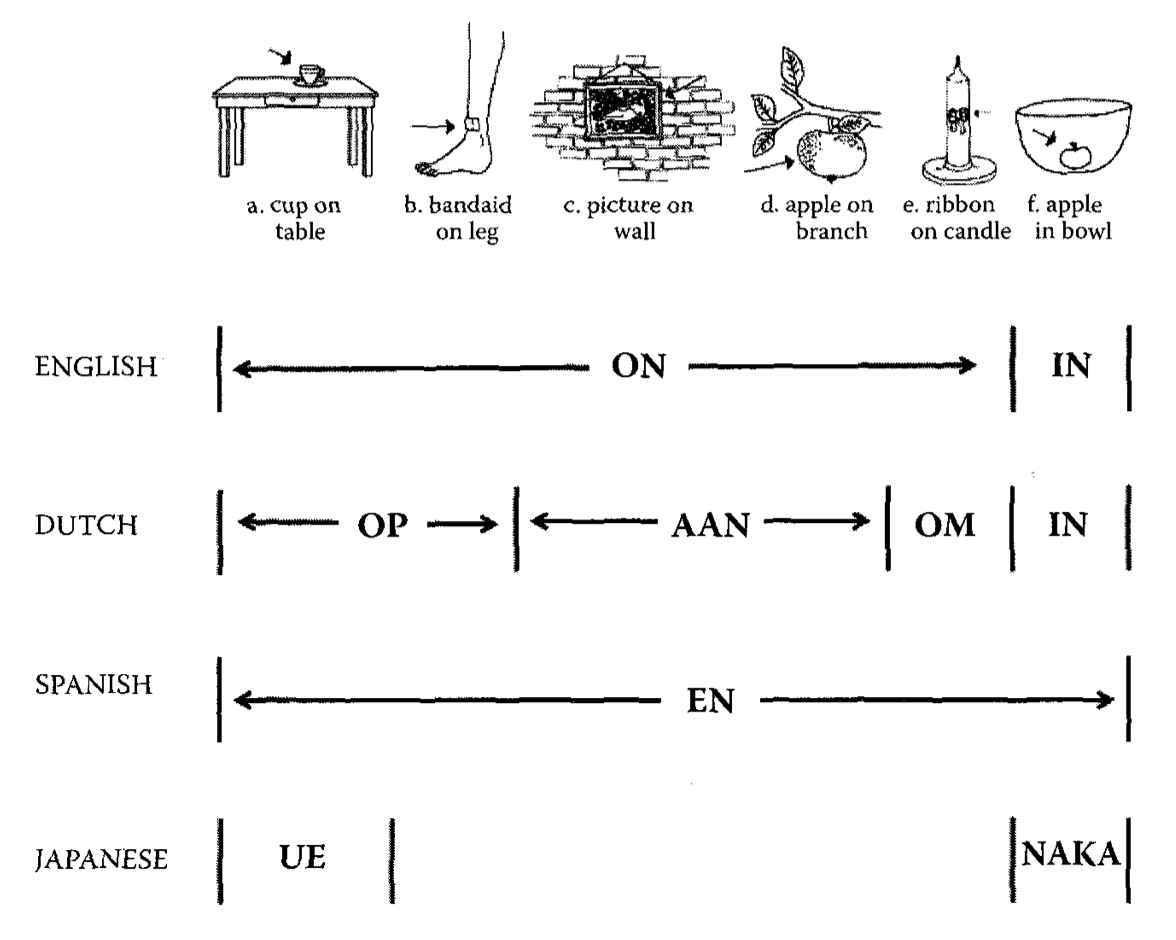Today's regular fascination concerns the etymology of words.
Ivan and I were watching a beautiful doco [1] called Mountain - it is an illustrious journey into the human feats of scaling mountains, and all the expected sublimity that comes with. Images of monks engaging in a spiritual journey, climbers on the edge, gazing upon a huge landscape from their insignificant position.
And so I wondered - what does mountain mean? My favourite adage is, "the brain named itself" - so how did we name the mountain?
Wikitionary (or the Dutch translation: WikiWordenBoek hahaha) is my favourite resource for this - the dictionary as a wiki, where anyone can make links and relations to any word in any language. I rendered these links using the fantastic Graphdot software, here's where mountain comes from:

I didn't create this diagram while we were watching the movie, but as I read that one of the roots of mountain is phonologically related with the root of "a spiritual activity" - I looked up and saw the monks in the doco traversing the landscape. It's simultaneously so logical yet so odd that these roots of thought are shared between us - withstanding that Proto-Indo-European is a theorised construction of language, but yet still - the similarities are astounding.
Here are a couple other interesting tidbits of etymology I've discovered these past weeks:
- mens, mentis 'mind' - recall compos mentis. mentir (French) meaning "to lie" - derives from a semantic change 'to have second thoughts, be inventive' > 'conjure up, lie'. [page 372 of here]
- prominent (English) derives from promineo, again, rooted in prō- + *men- (to rise up, protrude)
- &, known as the ampersand, is the slurring of "and per se and" (that's called a mondegreen)
- The Dutch word for "housemate" is huisgenoot: huis + genoot. Genoot derives from the past participle of the verb genieten, "to enjoy". So your housemate is literally your house enjoyer.
- An old Dutch expression for your wife/husband is your echtgenoot - echt meaning "true" or "really" - so your "true enjoyer/companion".
- Massaman curry? From the Turkish word for "Muslim man", Mussulman. Literally a Muslim curry - take that, Pauline Hanson!
- Germany has many terms in different languages. The English call it German because it was the regional area where the Romans called the people "Germānus". The Germans call it Deutschland, and other Germanic countries call it Deutsch. When the English needed to trade with the Netherlands, they distiguished between the (high) Germans by calling them Dutch. The French mainly interacted with the lower half, which were the Allemagne tribes. What's funny is that the Slavic countries didn't need to trade with them, and didn't understand their language, so they called them "Niemcy" - proto-slavic for foreigner, synonym of "mute".
Perhaps my favourite discovery relates to Belgium. Belgium is interesting, because they are the root of Europe's politics and the border of the Germanic and Romance languages. They host Dutch and French as languages on all their street signs in Brussels, and it's pretty evident when you arrive that they have the emotion and the rational personalities of both. So what does Belgium mean? It derives from the Latin, Belgae, which means "people who swell (with fury/anger)".
Language and computation
When I read Sapiens, I really enjoyed the thesis that the human species is successful primarily due to its ability to construct abstractions through the faculty of language. Things like money, but also on a more basic conceptual level: names and hierarchies. Through language, we are able to build an abstract environment of concepts that we can use to manoevre in the physical environment, much better than any other species.
We still don't know how language arose, or in what way it has developed from some form of "universal mother tongue". Personally, I really enjoy this computational theory of the mind (language) that is put forward by Chompsky. Can the mind be the computer, accepting inputs and producing outputs, which are coded in a lossy format we're always converging upon called language. I'm definitely biased, being a programmer, but it remains interesting to consider examples of word vectors: simple computer models of words that captures semantic relations like "queen - woman + man = king".
The last aspect of language worth mentioning is its intricate tie-in with our spatial senses. The Stuff of Thought is a great book I have from Steven Pinker, who takes you on a great narrative exploring our unconscious spatial metaphors - the future is always ahead of us, the past is behind. "You have to marvel at the complete lunacy of a language where a house can burn up as it burns down and in which you fill in a form by filling it out". The ontology of events, causality, viewpoints and how they relate to the grammar of aspect, imperfect/perfect tense is for another session - but I'd like to draw a particular example that my huisgenout in Amsterdam taught me.
In Dutch, there are four words for on: op, aan, om, and in (see below).

Why? They can't explain it to you - unless they study their own language like my friend Cas, in which case, it's very descriptive. You can put a sticker on a wall, and it is op de muur. But if you hang a painting up, it will be aan de muur. Why the difference? The distinction lies in how the object is hung on the wall - if the whole surface of an object is used, it is op, but if it is only mounted, such as a painting being nailed to the wall, then it is aan. Likewise, outside of grammar they have verbs that are used in places where English cannot specify: in English, you can put a cup on a table, but in Dutch, it's a bit more specific...if you place the cup down at its base, in a way that is functionally oriented, you use zetten (to sit). However, if the cup is sitting not on its base, if the way it is laid on the table is orthogonal to its use as an object (much like myself on the couch after work) - then the verb leggen (to lay) is used. Talk about pragmatism! This comes back to language as computation - obviously it is not impossible to express notions of the correct way to place down your cup of tea - but it is much more efficient with specific verbs.
In conclusion, next time you encounter a nihilist, ask them what their name is. Every word and label comes from somewhere, and hopefully they'll be able to find some meaning in that, at least ;)
Thanks to Nick, Doug and Casimir for reading through and giving me feedback on this. Nick, especially, for his always-exasperant discussions on these topics. Doug, for your critical rebuttals. And Cas, for infusing the interest of Dutch grammar in me.
[1] Aussie for documentary
